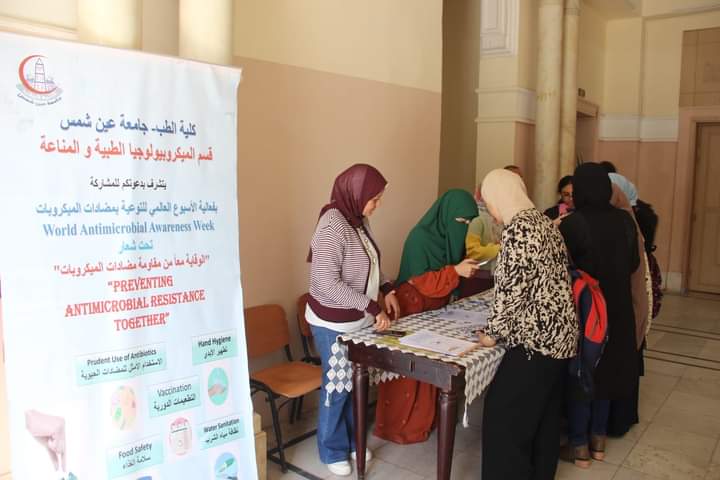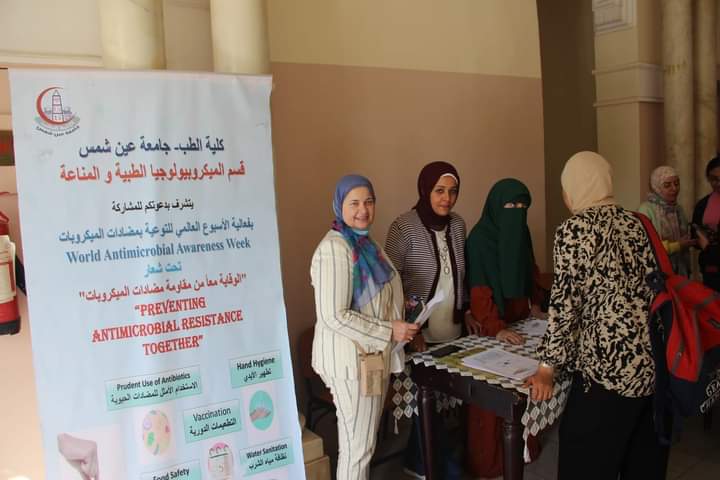An event at the Faculty of Medicine within the World Antibiotic Resistance Awareness Week
The Department of Medical Microbiology and Immunology at the Faculty of Medicine, Ain Shams University, in cooperation with the Association for Medical Microbiology and Immunology, organized an educational corner to educate Faculty of Medicine staff, students and visitors about the danger of microbial resistance to antibiotics and the fierce infections it causes and the impact of this danger on the health of society as well as the effective role of doctors, pharmacists and patients in confronting this threat to reduce it and eliminate microbial resistance to antibiotics, coinciding with the World Health Organization’s celebration of World Antibiotic Resistance Awareness Week,
 |
 |
|
This came under the auspices of Prof. Mohamed Dia, President of the University, Prof. Ali Al-Anwar, Dean of the Faculty of Medicine and Chairman of the Board of Directors of Hospitals, Prof. Hala Suwaid, Vice Dean of the Faculty for Community Service and Environmental Development Affairs, headed by Prof. Maha Hamdy, Head of the Department of Medical Microbiology and Immunology at the Faculty.
The educational event was held in front of Al-Banhawi auditorium and in the Department of Medical Microbiology and Immunology, Faculty of Medicine, Ain Shams University, during the period from November 19 to 22, 2023, for three hours a day, with the participation of faculty members and supporting staff. Awareness materials were prepared, educational corners were prepared, awareness was provided, and a questionnaire was followed up to measure awareness of the participants during the four days of the awareness campaign.
Awareness materials were also presented to the attendees, who included 235 students, workers and health service providers, in the form of educational publications from medical references, as well as World Health Organization awareness campaign materials recommended for use in awareness campaigns about the danger of microbial resistance to antibiotics and ways to reduce them. this is the problem. The faculty members and supporting staff provided awareness in Arabic and English to students and college employees, explaining the role of doctors as well as patients in eliminating the threat of antibiotic resistance, as well as by playing awareness videos on college and department screens in Arabic and English, where education was aimed also for non-Arabic speaking students.
Explaining the role of doctors and patients in eliminating the threat of antibiotic resistance, as well as by playing awareness videos on college and department screens in Arabic and English, as the education also targeted non-Arabic speaking students.
An electronic questionnaire was also conducted to measure awareness of the correct use of antibiotics to determine participants’ awareness of the seriousness of the problem of antibiotic-resistant microbes, its causes, and the means that may help reduce it. 138 participants participated in the questionnaire, including 75.4% of students, 9.4% of health service providers, and 6.5% of faculty employees. The correct awareness rates about the proper use of antibiotics ranged from 31.2% to 89.9%, and one of the most common reasons for taking antibiotics without a prescription was not wanting to visit a doctor, and the most common symptom leading to taking antibiotics was fever with general body pain and sore throat.


.svg)




